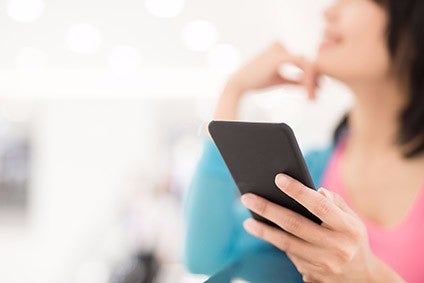
The dramatic increase in online shopping has fast-forwarded the way consumers want to shop, signalling an imminent change in the retail sector, according to a new report.
Research from O2 Business, in partnership with Retail Economics, reveals that 44% of customers feel the Covid-19 pandemic will have a permanent impact on the way they shop moving forward, with 47% stating that the number of times they shop online will definitely increase.
This comes after the peak of the pandemic, when over a third (34%) sourced essential and non-essential items from online retailers.
The report identifies the need for retailers to provide a digitised shopping experience that the modern, connected customer of 2020 and beyond now expects.
Nearly half (49%) of customers are spending more time researching potential retail purchases online than they were before the pandemic – which jumps to 63% and 61% amongst customers aged 16-24 and 25-34 respectively. Almost half (47%) of customers gain awareness of retail brands through digital channels, despite online accounting for only 20% of overall sales.
This reliance on online retail continues to the point of purchase, as the report identifies how digitisation has changed the purpose of physical stores, which are fast becoming an important marketing tool. Around 24% of customers say they have purchased an item online whilst in-store, and over a third (36.5%) have used their mobile to read reviews or price-check online while shopping in a physical store.

US Tariffs are shifting - will you react or anticipate?
Don’t let policy changes catch you off guard. Stay proactive with real-time data and expert analysis.
By GlobalDataAs customers are becoming even more connected, with 62% saying that being connected is very, or extremely important to their lifestyle, the report suggests physical and digital realms must merge. O2 Business and Retail Economics are therefore calling on retailers to understand what is driving customers’ behaviour, and make the most of opportunities afforded by connectivity, data and the Internet of Things.
“As a technology partner to the industry, we wanted to find out what the tectonic shifts have been in how people have engaged with each other over the last decade,” says Jo Bertram, managing director at O2 Business. “In particular, the way in which smartphones, tablets and even watches have impacted us all as customers, retailers and business leaders. The effect the lockdown has had to the way we buy has been significant, but they’ve accentuated these shifts more than redirected them.”
Richard Lim, CEO of Retail Economics, adds: “The impact of Covid-19 has re-wired the customer journey, leaving many retailers scrambling to assess the impact as they attempt to realign their proposition to meet a new normal.
“We’ve already witnessed a significant shift towards online and it’s inevitable that some of these behaviours will become permanent, with digital playing a much more important role. Many of these consumers are shopping for goods online for the first time, overcoming the barriers of setting up online accounts, entering payment details and gaining trust.
“The new normal will involve a step-change in the integration of digital technologies and retailers are assessing what this means for the number of stores, where they should invest and the potential partnerships that could be formed.”




